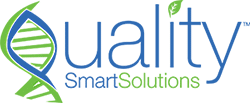 In order for food that is regulated under the Safe Food for Canadians Regulations, to be imported into Canada, the importer must hold a valid Safe Food for Canadians (SFC) license.
In order for food that is regulated under the Safe Food for Canadians Regulations, to be imported into Canada, the importer must hold a valid Safe Food for Canadians (SFC) license.
This license is issued by the Canadian Food Inspection Agency (CFIA) and must be presented with the shipment at the border in order for importation to be approved. Please note that this licensing may not be obtained at the border and all documentation must be in order when the shipment arrives at the border for it to be eligible for import.
The CFIA has announced that as of March 15th, 2021 certain commodities may be rejected by the CFIA unless a valid SFC license is entered in the Integrated Import Declaration (IID). The following food commodities are included.
- Meat
- Fish
- Dairy
- Eggs
- Processed Eggs
- Processed Fruits or Vegetables
- Honey
- Maple
- Fresh Fruits or Vegetables
The Safe Food for Canadians license number should be entered into the appropriate field exactly as it was issued. This field is entitled “Registration Number” and the format for the license number an 8-digit alpha-numeric code.
The provided SFC license number will be reviewed to ensure that the license is valid, covers the activity of importing food, and covers the specific commodity being imported.
If the license number is not valid, a reject message will be received in the importer or custom broker’s IID system. See the below chart for an explanation of reject messages that could be received. If you have multiple licenses, verify that you are entering the correct license number on the import declaration.
| Reject Message | Reason for Reject | Corrective Actions |
| AIRS registration number is required. (893 – Safe Food License). | When the registration number field is left blank. | Enter your SFC license number in the registration number field. |
| License number must be 8-digit alpha numeric (A12B3CD4). Verify license in My CFIA. | When a Y or N is entered, or the number provided is not in the CFIA database. (Check for typos) | Ensure your license number is entered correctly. |
| License number is either suspended, cancelled, or expired. Verify status in My CFIA. | When the license number entered has been suspended, cancelled, or expired. | If your license is suspended or cancelled, you will have to contact your local CFIA office. If your license has expired, you will have to apply for a new one using the My CFIA Portal. |
| License number is not valid for importing. Verify activity in My CFIA. | When the license number entered is not issued for importing food. | You can amend your license in your My CFIA portal to include “importing food” to your license profile. |
| License number entered does not cover food being imported. Verify license in My CFIA. | When the license number entered is not issued for the food commodity that is being declared. | You can amend your license in your My CFIA portal to include the commodity in your profile. |
Please note you can amend your SFC license at any time utilizing the My CFIA Portal without incurring an additional fee.
Obtaining a Safe Food for Canadians License:
The first step involved in obtaining a Safe Food for Canadians license is to create a My CFIA Account. It is through the use of the My CFIA account that you can request license and export certifications as well as set up electronic payment methods. While enrolling, you can create one or more profiles for your business. This way if your company involves multiple site locations, you can have a profile for each site.
Once your My CFIA Account is created, you will need to then determine your license structure. Since the Safe Food for Canadians Regulations do not limit the number of licenses a person can hold, you can operate under a single license or multiple licenses. It all depends on what works best for your business!
In order to decide how many licenses you will request, you should take the following points into consideration.
- There is a fee for each license requested.
- A Preventative Control Plan must be implemented and maintained for each license you hold.
- Since many foreign trading partners require unique identifiers for each location or establishment, you may want to ensure that each license you hold is only associated with one establishment is you deal with exportation.
- If there is more than one license for a particular physical location, there cannot be any overlap in the food categories and activities covered by the license.
After you know which license(s) you wish to apply for, you should collect all the necessary details of your business that are required during the application process. The following must be entered into the Safe Food for Canadians License Application,
- The activities being conducted.
- The location of the establishment(s) where the activities will be conducted.
- The category of food.
- Attestations regarding the requirements of holding an SFCR License such as having a preventative control plan implemented within the facility and that the information provided within the application is complete and not misleading.
Once the application for licensure has been submitted you will receive an electronic message indicating whether your license was approved or if the CFIA must first inspect the business before the license can be issued.
If your license is approved, it can be found within your My CFIA account.
If the CFIA has indicated that an inspection is required first, this could be for several reasons. The CFIA utilizes a risk-based approach for inspecting new business with a variety of risk factors being selected to prioritize and manage the inspection activities. If you are requesting an export certificate or other permissions, this inspection may be a requirement of the importing country.







